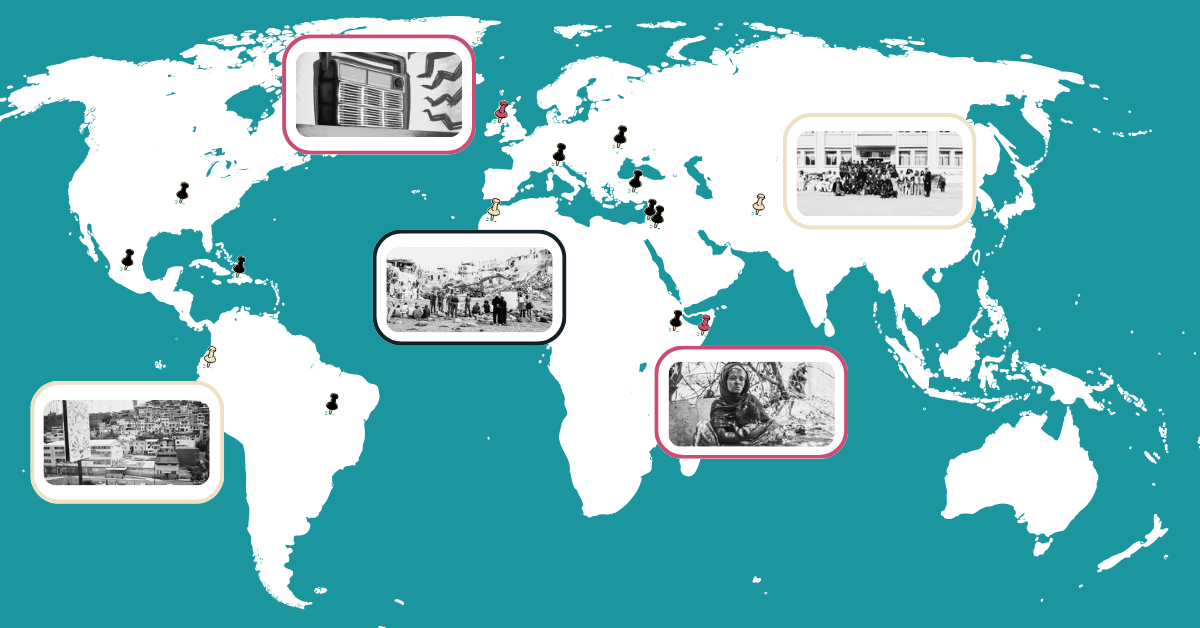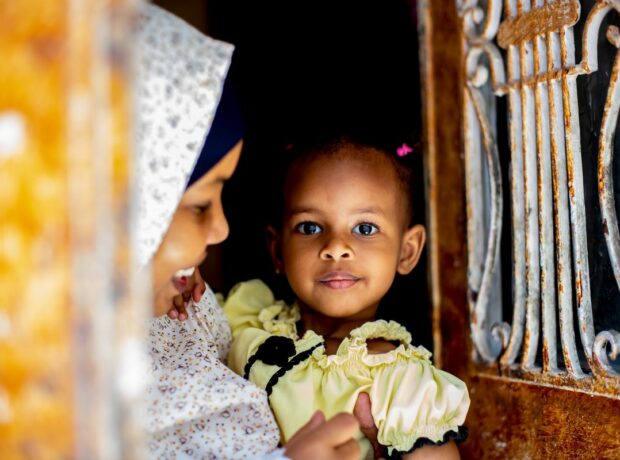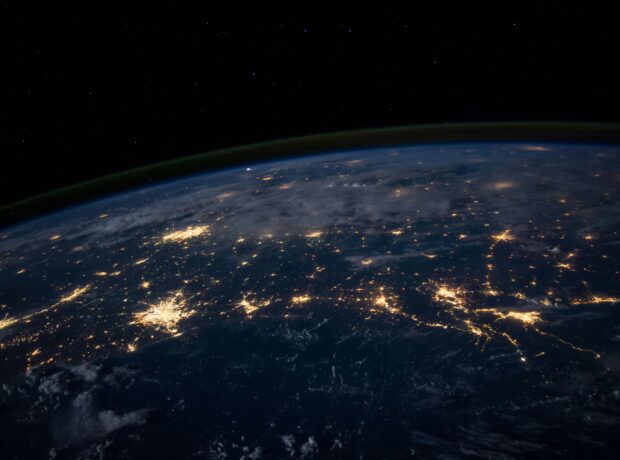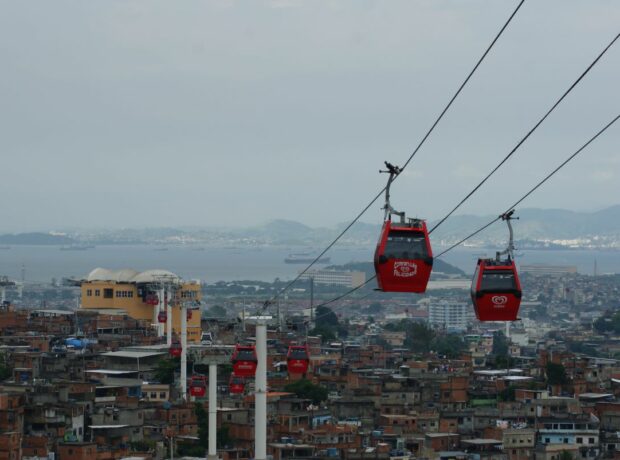This year we’ve celebrated Lacuna Magazine’s tenth anniversary, gathering a decade of human rights journalism and creative writing from around the world in our new interactive world map.
In 2024 we’ve continued to bring together academics, students, journalists and campaigners to publish stories about human rights that might otherwise go untold. The stories chosen below, from Palestine to Ukraine, and Ecuador to Ethiopia, span historical fiction, political opinion pieces, travel writing and photo galleries. (Click to explore the map.)
This collection comes from professional writers and photojournalists as well as students and newer writers, exploring a breadth of voices and views.
We look forward to bringing you more in 2025. If you’d like to write for us, get in touch. And subscribe here to receive our stories direct to your inbox.
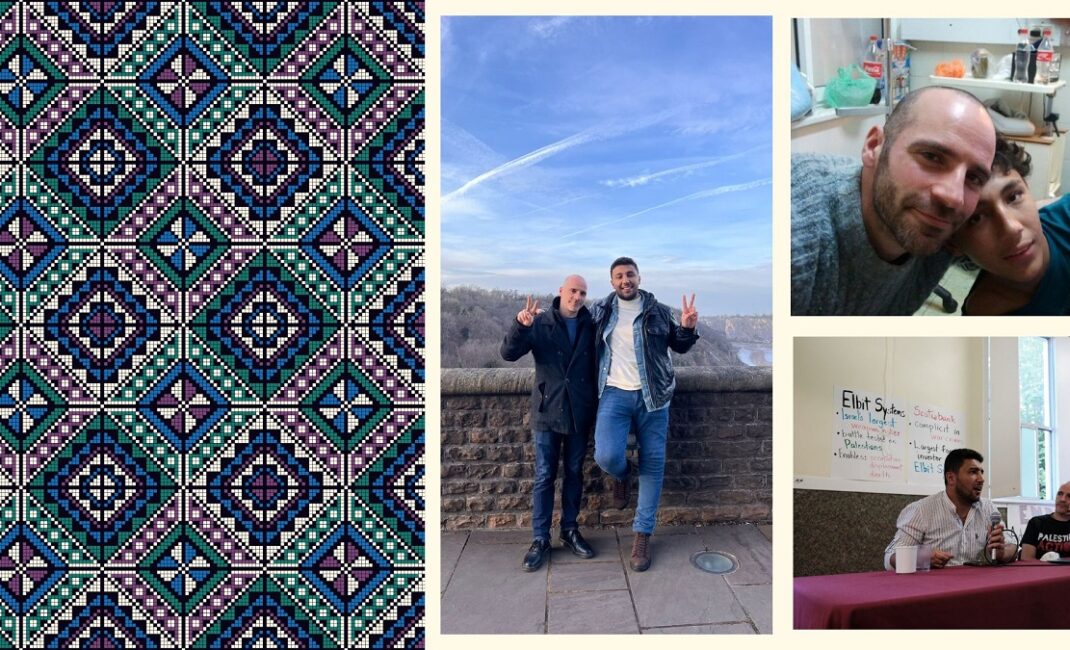
Surviving Israel’s bombs: A 13-year journey from Gaza
“Mohammed and all drone victims, we’re doing this for you”
At 15 years old, Mohammed Al Zaza suffered life-changing injuries when the Israeli army bombed his home in Gaza City. Now, 13 years later and from the other side of the world, he is once again watching bombs fall on Gaza and waiting for news from his family. This story, by freelance journalist Melissa Pawson, is about the transformative friendship forged when an Israeli dissident visited Al Zaza in hospital during his recovery.
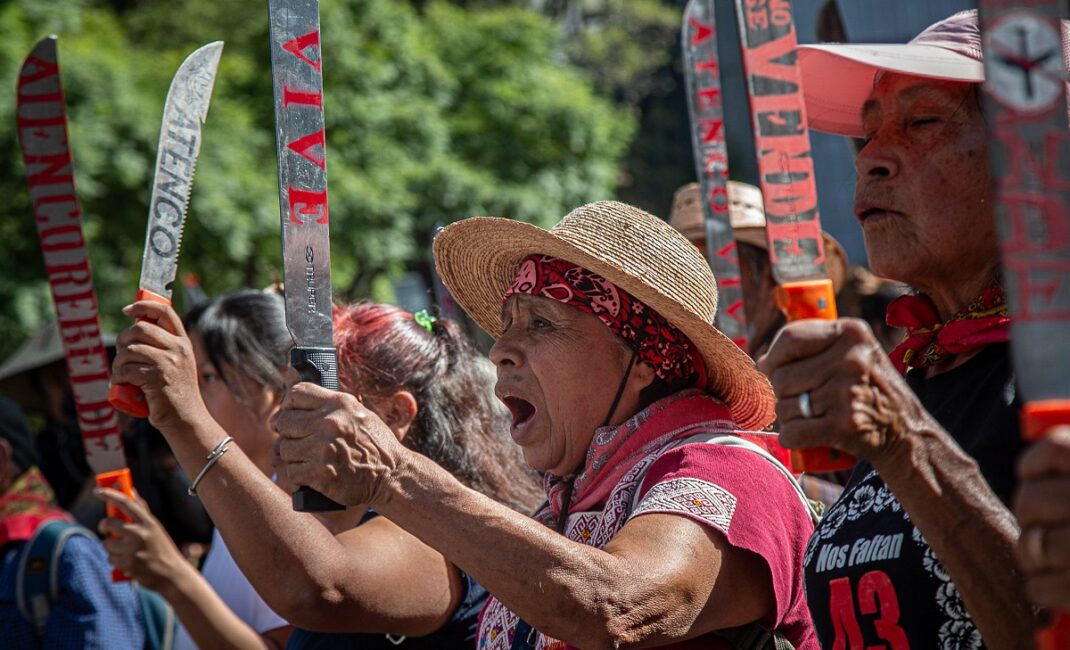
Los 43 de Ayotzinapa: Parents fight for truth 10 years after their children disappeared
“Instead of solving the case, they covered it up. They built the ‘historic truth’ by torturing people, and because our children are children of peasants, they thought it would be easy to deceive us.”
Ten years have passed since 43 students from Ayotzinapa, Mexico – Los 43 – were detained and disappeared in one of the country’s most infamous human rights cases. Their parents, united in pain, have spent the decade searching for their children and challenging misinformation and indifference from those in power. On the tenth anniversary, with Mexico’s first female president about to take office, Paula González Gavilanes revisited the case, speaking with the parents who continue their protest.
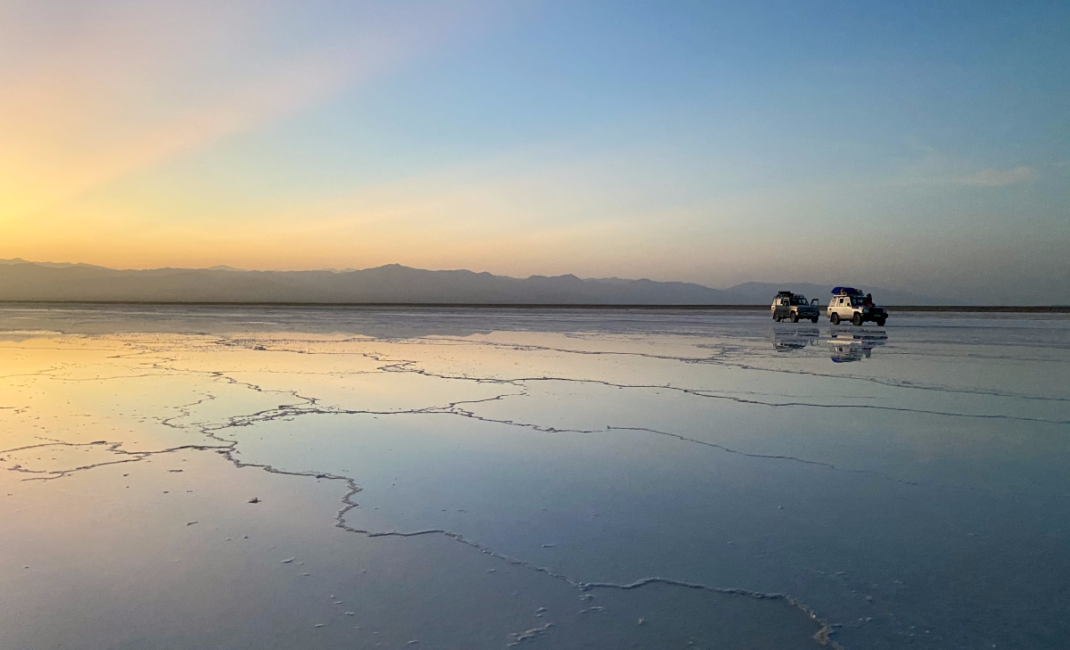
Last Day on Earth: How the climate crisis is affecting the world’s last nomadic Afar tribe, in Ethiopia
“Bright-eyed and clever, Riwan anticipates (and curtly brushes off) stereotypical portrayals of African women in the Western imagination, confidently stating ‘[us] staying home has less to do with condescending machismo clichés imputed [on the ‘Global South’]’ but rather ‘indigenous women’s historical role as the backbone of the labor force – it is empowering’.”
The Afar nomadic indigenous people of East Africa are fighting to preserve their distinct way of life amid climate catastrophe. In this striking photo essay, Afar women, children and elders explain how the climate crisis, infrastructure megaprojects, and conflict are affecting life for nomadic communities in Ethiopia. Writer and photographer Soukaina Rabii captures an astonishing landscape alongside thought-provoking testimonies. Her previous story for Lacuna explored the magic of saying “Raha!”
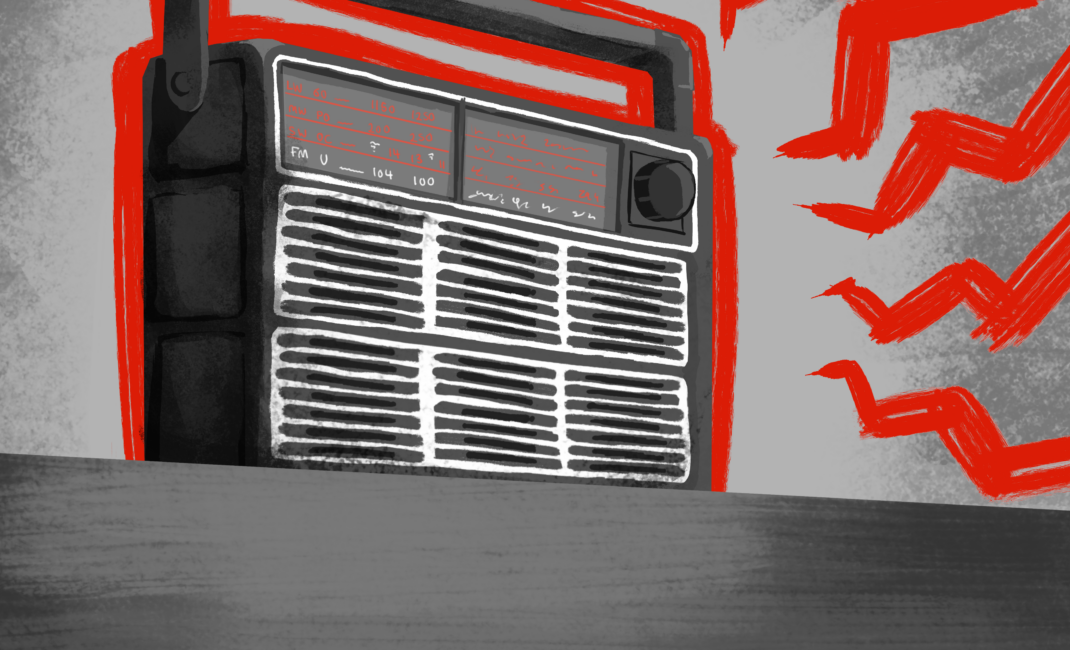
Bloody Sunday – a short story about the 1972 massacre of unarmed civilians
“I was younger than you when the Easter Rising happened, but I remember the feeling. The belief that one act would change the order of things, that we were on the verge of a breakthrough.”
Undergraduate law student Bronte McErlean wrote this piece of creative fiction about Bloody Sunday as a response to one of the themes of the Writing Human Rights module at the University of Warwick. The story explores a historic event which continues to impact the Catholic community in Northern Ireland. It was inspired by the words of 17-year-old Jackie Duddy’s sister, Kay: “We didn’t just lose a wee brother, we lost a generation”.
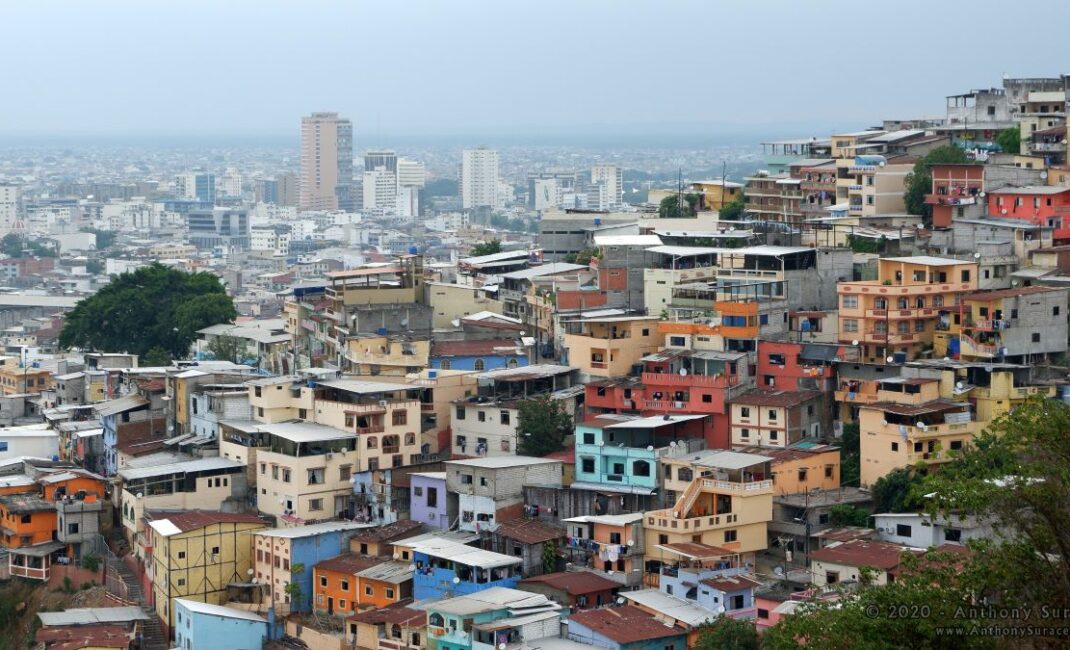
Photo of Guayaquil by Anthony Surace via Flickr
From Guayaquil to “Guaya Kill”? Examining Ecuador’s descent into drug violence
“You know that there can be consequences, you can get hurt and you can end up in the morgue. Every action has a reaction; if you don’t react, you’re a dead man.”
Just a few years ago, Ecuador was a peaceful eco-tourism hotspot. Last year, it had the highest murder rate in Latin America. In this report from Guayaquil, freelance writer Danny Wiser hears the stories of three Ecuadorians – a former prison worker, a firefighter and a retired teacher – and finds many of the country’s citizens want out.
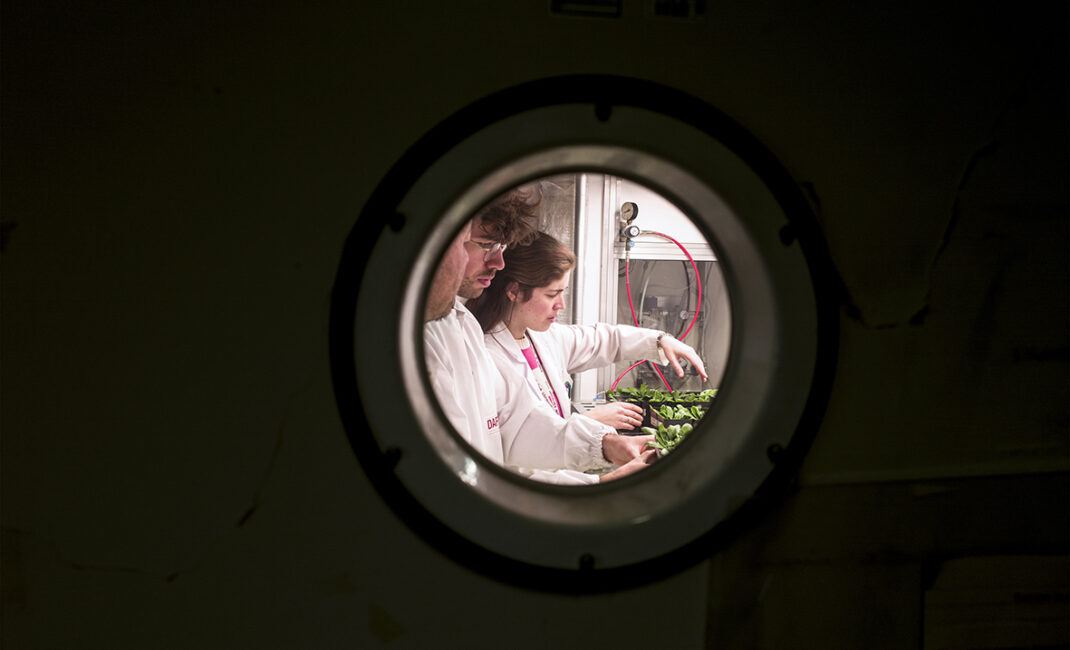
PFAS ‘Forever Chemicals’ – and the Italian mothers fighting for health justice
“Water is at the core of everything. If you don’t go to the root of the problem, eventually you will pay for it, and with a high interest rate.”
In northern Italy, a campaign group of mums, Mamme No PFAs, is fighting against the “forever chemicals” that are poisoning their water supply and their children. In this piece, freelance writer Beatrice M Spadacini and photographer Stefano Schirato visit Veneto to speak with the Italian mothers who are documenting the devastating health effects of PFAS in an area three times bigger than the US community featured in Mark Ruffalo’s film Dark Waters. Stefano’s previous photo gallery for Lacuna explored unregulated mining in east India’s Jharia coalfield.
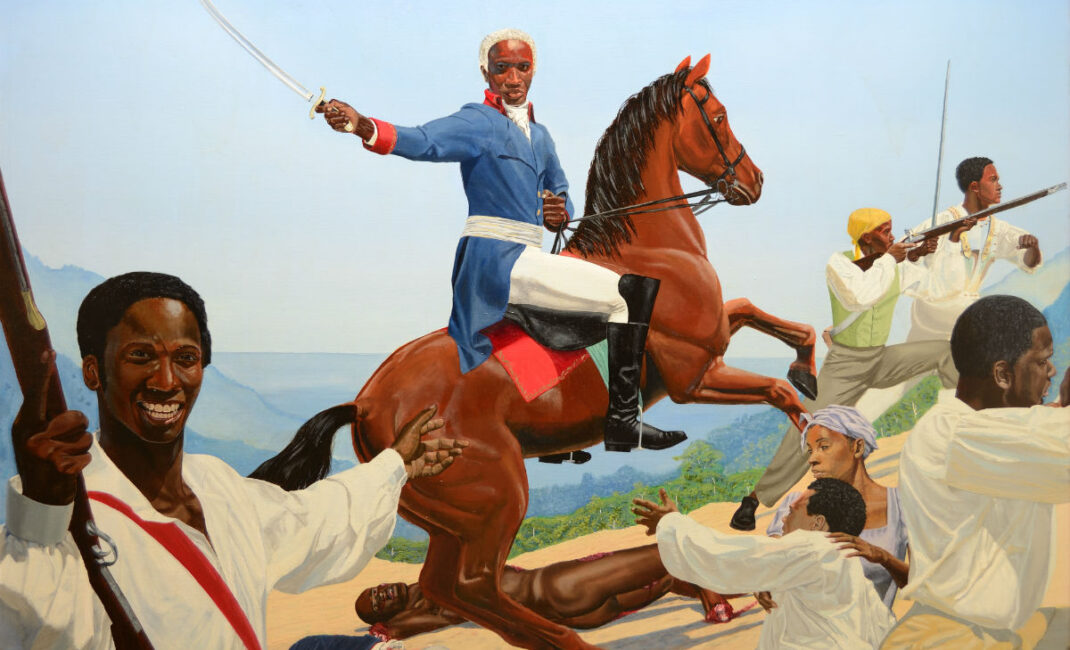
Toussaint L’Ouverture, the most prominent leader of the Haitian revolution. Painting by Kimathi Donkor.
“They’re eating the pets”: The deep history behind Trump’s racist, anti-Haitian lies
“In the years since [Thomas Carlyle’s racist pamphlet of 1849], the discourse surrounding Haiti has not changed nearly as much as one might think…”
In the run-up to the US election, Donald Trump and JD Vance made false claims that Haitian immigrants in Springfield, Ohio, were eating pets. The claims made during a televised presidential debate were widely criticised and debunked by fact-checkers, but in this piece, associate professor Philip Kaisary finds that behind those claims lies a long history of racist denigration. Philip, an author who has written extensively about the Haitian Revolution, looks back over 200 years to understand the longevity and power of anti-Haitian sentiment.
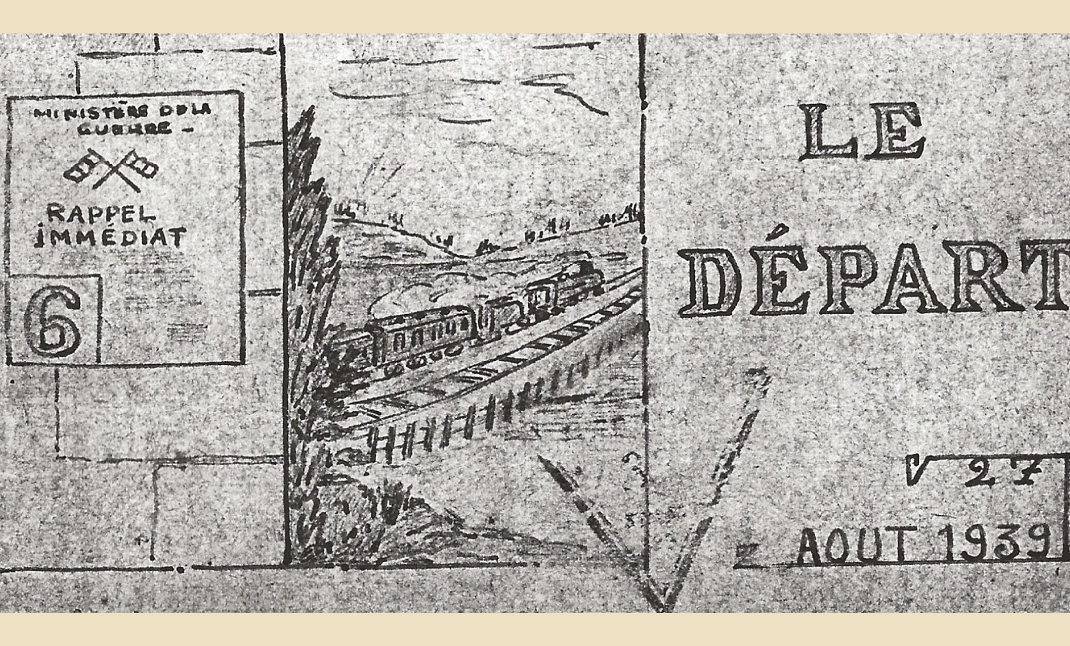
Remembering Rawa-Ruska: Artistic sketches of the Second World War camp
“I spotted a couple of metal boxes hidden under some postcards and a few books. Grabbing a few yellow pages filled with drawings, on the front page, in cursive handwriting, I read: ‘June 1940, the Departure’.”
Discovering her great grandfather’s sketches of the Second World War, undergraduate law student Camille Aymond recounts his story of being held by the Nazis in the Rawa-Ruska German war camp in Ukraine. Like Bronte McErlean’s Bloody Sunday story, this piece was originally written as a response to the War Crimes theme in the Writing Human Rights module at the University of Warwick.
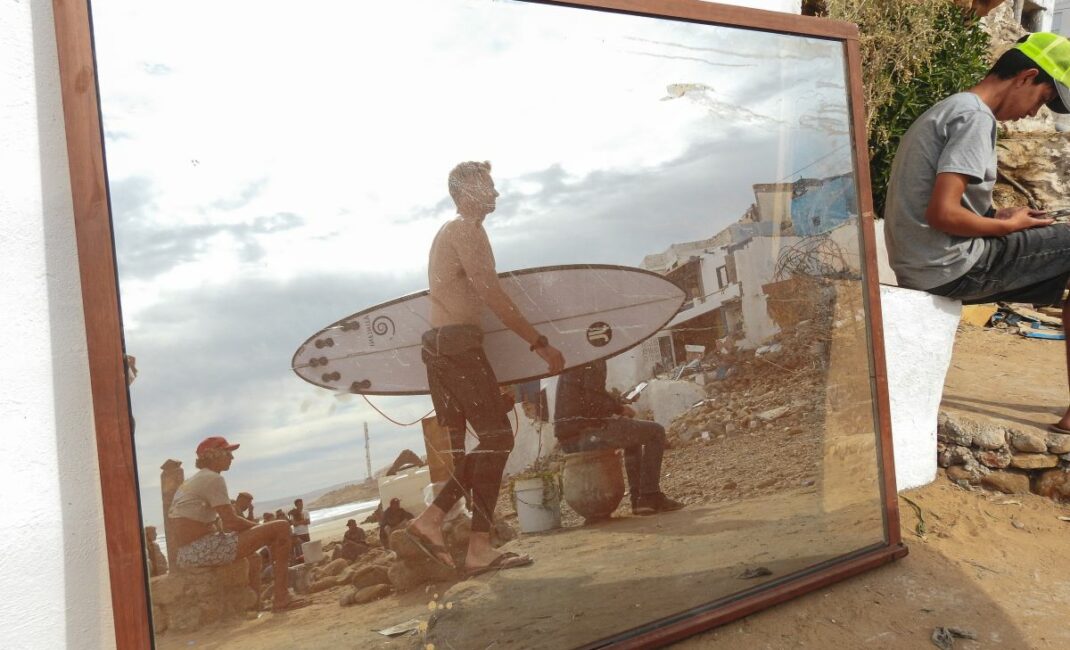
Between the Surf and the System: Morocco’s tourism boom brings a quiet erasure of Amazigh heritage
“Our history was mostly written by Arabs or Europeans. Historians are [still] trying to rewrite history and correct all the lies we’ve been told about the history of this country.”
The surf season in Morocco lasts from October to March. This year, journalist Nour Ghantous spent those months on the south coast, travelling through three of Morocco’s most up-and-coming surf towns: Imsouane, Tamraght, and Taghazout, where tourists are drawn from around the globe. But beneath this wave of popularity lies a quieter, more troubling undertow – the gradual erosion of Amazigh heritage. Nour’s previous pieces for Lacuna tell the inspiring survival stories of Malala Yousafzai’s schoolfriends and explore Nour’s own Arab Irish identity.
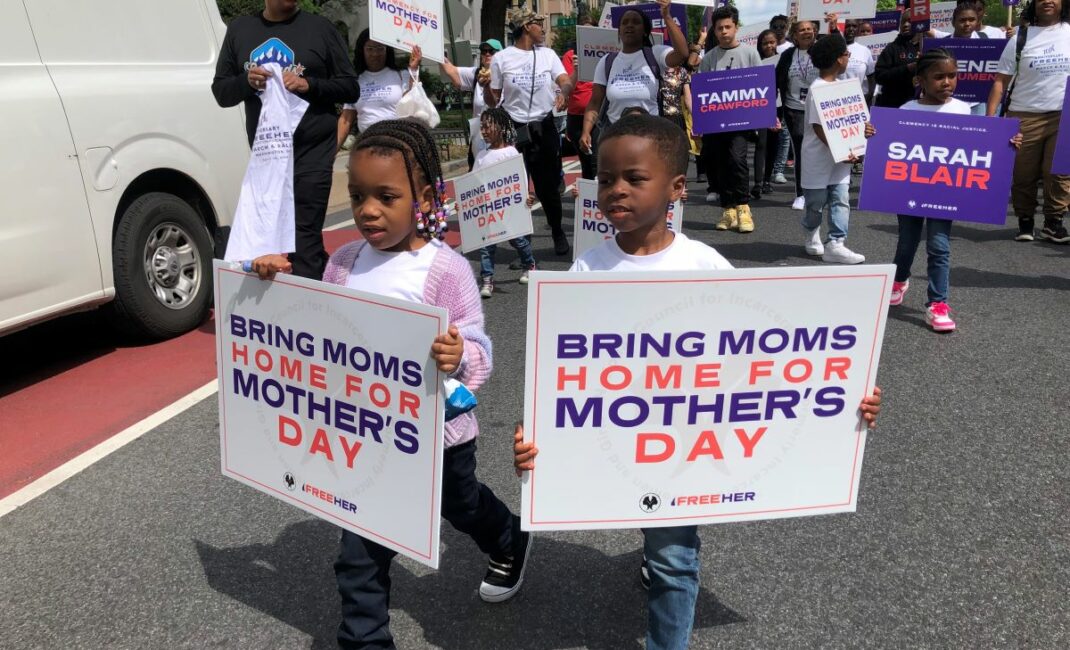
#FreeHer: Women don’t belong in cages
“Over half of the women held in American jails have not been convicted of a crime and are waiting for a court date.”
The #FreeHer campaign by the National Council for Incarcerated and Formerly Incarcerated Women and Girls is reimagining approaches to equality, community and justice for imprisoned women and mothers. In Washington DC, Beatrice Spadacini explores the work of grassroots abolitionist activists and their fight to defund America’s repressive criminal justice system, invest in community infrastructure, and combat its treatment of minority women in prisons.
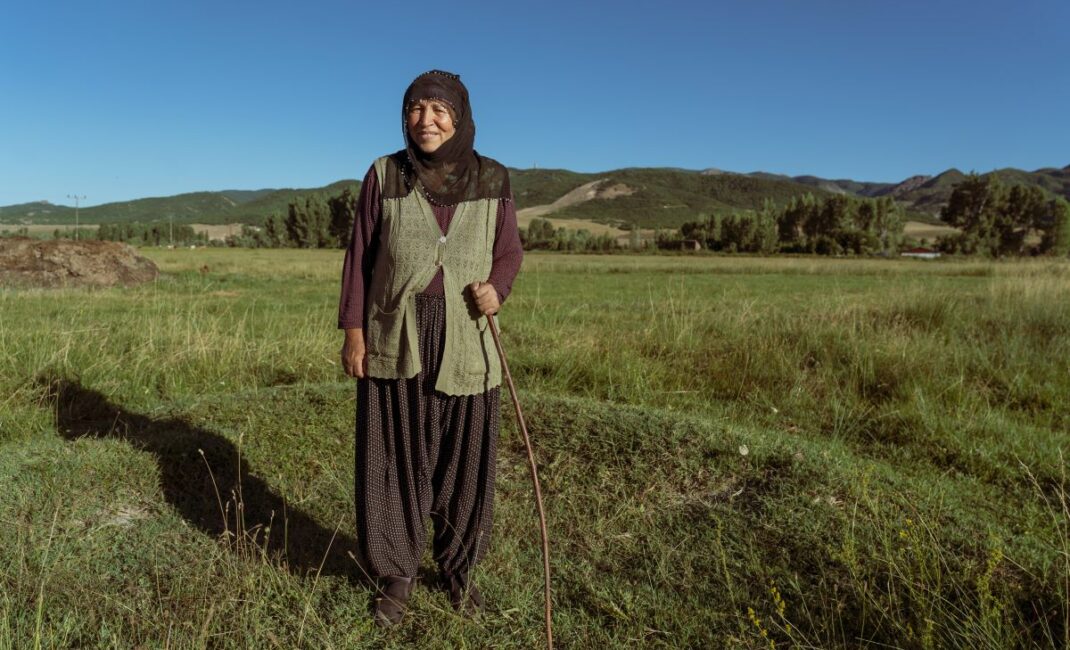
‘No river, no life’: Alevi Kurds in Turkey battle to save Munzur River
“We do not believe in this government or justice system. If we have problems, we consult with the water, mountains, rocks, and trees – not the state.”
Turkey’s Alevi Kurds fear a series of dams and hydroelectric power plants on their sacred river will exterminate their culture. Following an Erdoğan win in the 2023 general elections, these fears have worsened. In this feature from the scenic Munzur Valley, freelance writer Jaclynn Ashly speaks with farmers, community leaders and activists about the delicate balance of nature.
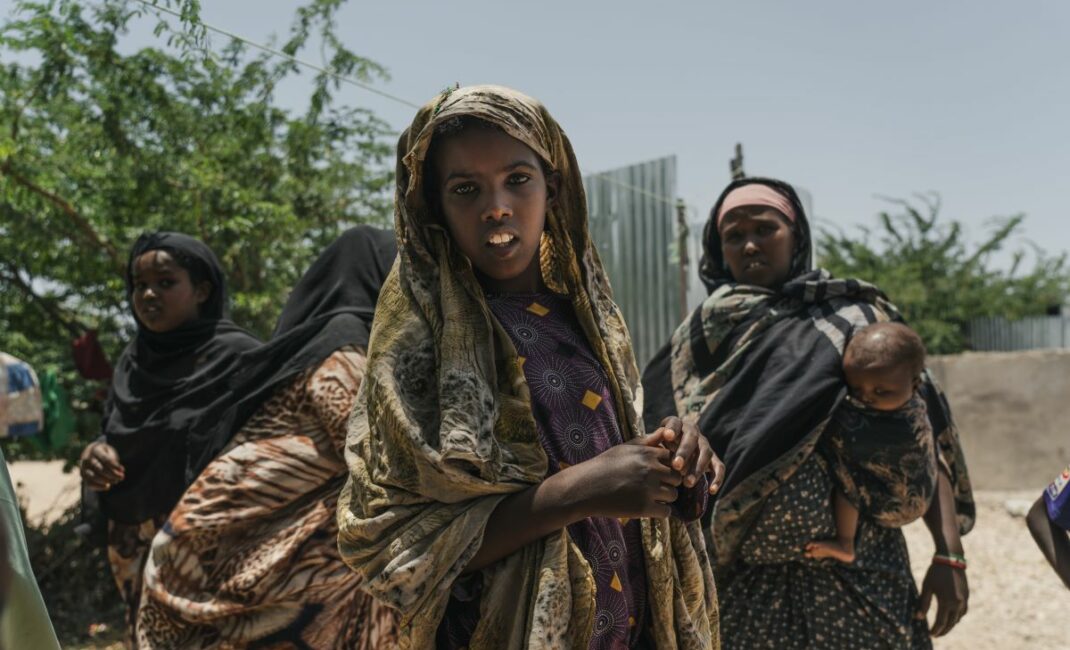
The story of Somaliland’s internally displaced people (IDPs)
“Those displaced from south-central Somalia, whether due to conflict or natural disasters, who seek refuge in Hargeisa also contend with another challenge: while the international community, which does not recognize Somaliland’s sovereignty, define those displaced from south-central Somalia as IDPs, the Somaliland state considers them refugees.”
In Somaliland, conflict and climate change are causing scores to flee home as “internally displaced peoples” (IDPs). But in a self-proclaimed independent country unrecognised by foreign powers, the distinction between “IDP” and “refugee” becomes less clear. Jaclynn Ashly finds the Sheikh Omar settlement, outside the capital Hargeisa, is one of many housing a growing number of IDPs fleeing to urban centres and facing unique challenges.
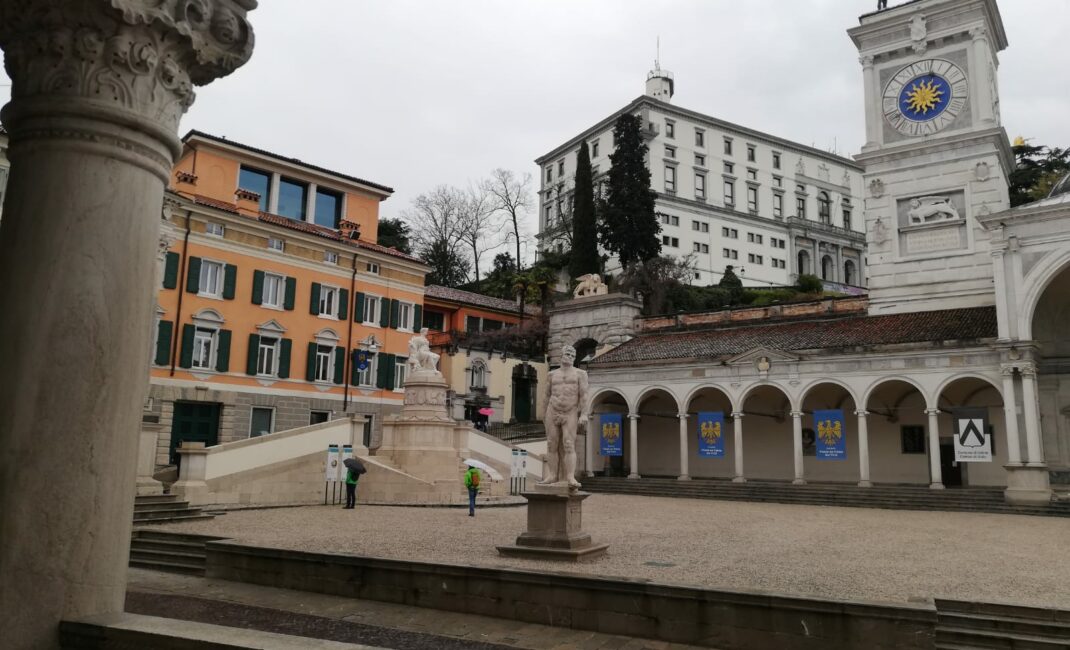
A refugee story: From Afghanistan to Italy to protect women’s rights
“I want to tell my story and those of other women, so that the world cannot forget my people.”
NGO president and women’s sports champion Firoza Wahedi took an oath to protect women’s rights in Afghanistan. But after the Taliban takeover forced her to flee, she was left to build a new life in Italy. In this piece, medical student Chiara Ercolini interviews Wahedi about fleeing Herat, the challenges of restarting life in northern Italy’s Friuli Venezia Giulia region and the struggle of watching her home country, where her family remains, from afar.
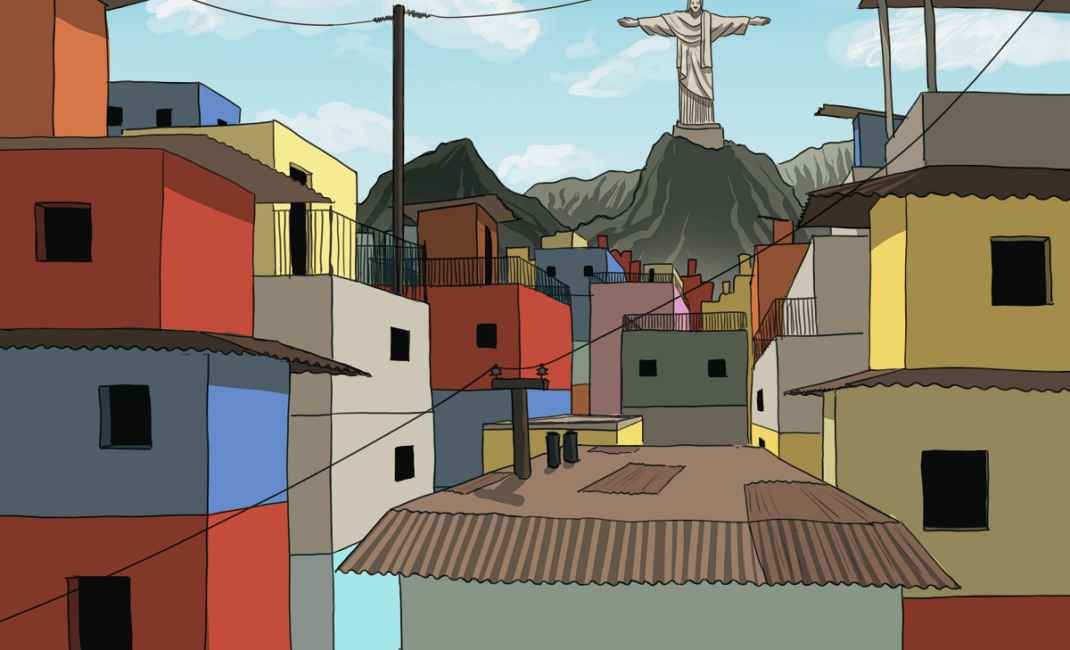
‘Necropolitics’ in Brazil’s favelas during the Covid-19 pandemic
“Necropolitics describes a form of governance in which power is used to influence who can live and who must die. Those who were left to die under the Bolsonaro government were the favela residents.”
Who decides who has the right to health and the right to life in the favelas of Brazil? And what impact did Covid-19 have on the 16 million people living in favelas? After spending two years in Brazil, and visiting Complexo do Alemão favela in Rio de Janeiro, PhD student Maria Weickardt Soares wrote this story as a response to the annual Lacuna Writing Competition. The competition invites undergraduate and postgraduate students to write about the human rights issues they care about.
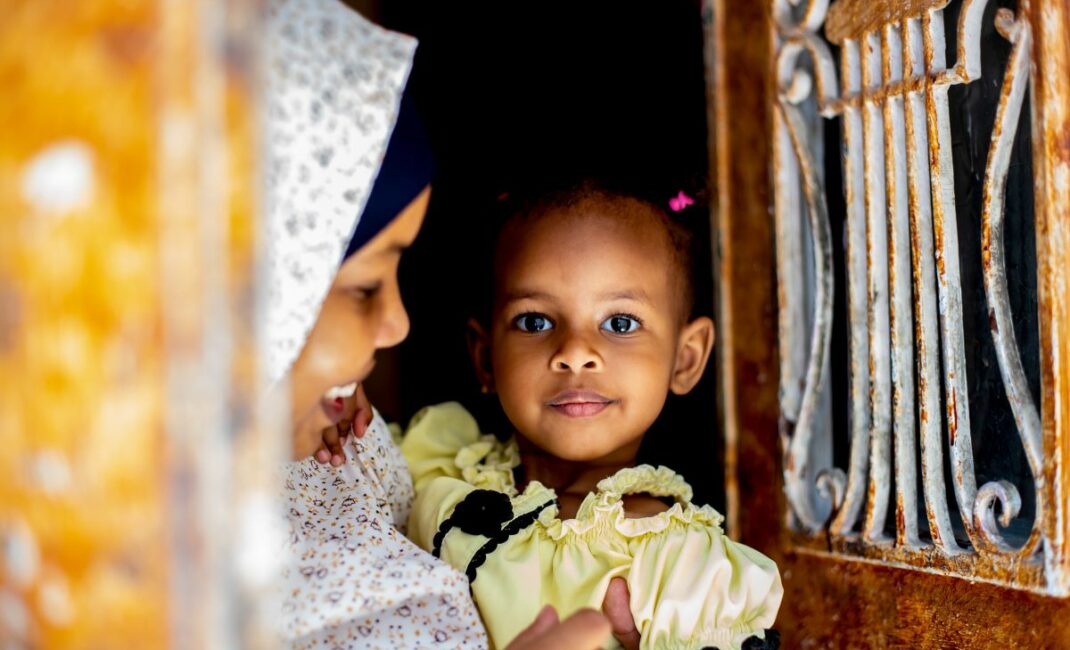
While We Wait: The stories of seven refugees waiting to restart their lives
“I want to show that I’m still here and to give people who may be in the same situation as me hope. They are not alone.”
Finally, this photo series features women who have fled war as refugees, finding themselves in Jordan, waiting for resettlement to Europe or North America. Coming from Yemen, Sudan and Somalia, each woman is forced to wait, without permission to work or study, to restart her life. Undergraduate student and freelance photojournalist Rayna Carruthers presents their images and stories.
All these features can be found on our new interactive world map.
Thank you to all the writers and readers of the stories we’ve published this year. We look forward to bringing you more in the year ahead.
